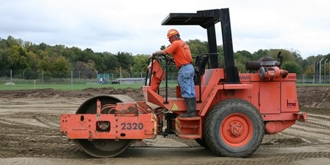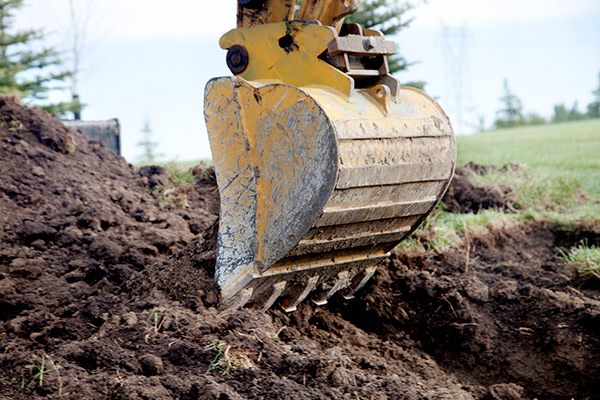Lancaster Trenching - Expert Trenching Solutions in Lancaster, Ohio
Lancaster Trenching - Expert Trenching Solutions in Lancaster, Ohio
Blog Article
Comprehensive Excavation Strategies: Grasping the Principles for Success
The careful preparation, precise execution, and careful interest to information required in excavation projects require an extensive approach that encompasses different fundamental elements. The true mastery exists not merely in comprehending these principles yet in perfectly incorporating them to navigate the intricacies of excavation jobs with finesse.
Understanding Excavation Job Preparation

The initial stage of any type of excavation task is the preparation stage, where crucial choices are made that can dramatically influence the result of the task. Recognizing the job spending plan, extent, and timeline restrictions is important for developing a thorough excavation plan that guarantees the job's success.
One trick element of excavation job planning is the growth of a comprehensive timeline that lays out the sequence of target dates, landmarks, and tasks. By meticulously taking into consideration all these factors during the planning phase, excavation projects can be executed successfully and efficiently, leading to effective end results - excavating ohio.
Dirt Evaluation and Site Examination
Conducting extensive soil evaluation and site analysis is an essential action in the prep work phase of any kind of excavation project. Dirt evaluation entails identifying the make-up, framework, and buildings of the dirt at the excavation site. This details is critical for comprehending the dirt's bearing ability, dampness material, and possibility for erosion, which are vital factors in identifying the excavation methods and devices required for the project.
Website evaluation goes beyond dirt evaluation and incorporates a wider evaluation of the overall site problems. This evaluation consists of recognizing any potential threats, such as underground utilities, environmental issues, or unpredictable terrain, that might impact the excavation procedure. By thoroughly evaluating the site, task supervisors can develop effective excavation techniques that focus on safety and security, effectiveness, and ecological protection.
Making use of advanced modern technologies like ground-penetrating radar, dirt sampling, and drone studies can boost the precision and performance of soil evaluation and site examination. Spending time and sources in these preliminary actions can ultimately conserve time and stop expensive delays or difficulties during the excavation procedure.
Equipment Selection and Use
Reliable excavation tasks rely greatly on strategic tools choice and application to make sure optimal efficiency and performance. Choosing the right equipment for the task is critical in optimizing performance and minimizing downtime. Factors such as the kind of dirt, depth of excavation, and job range play a significant role in determining one of the most ideal equipment for the job handy.

Along with picking the suitable devices, correct application is vital to project success. Operators should be educated to manage the equipment securely and efficiently - excavating ohio. Routine upkeep checks and prompt repairs assist avoid malfunctions and make certain consistent efficiency throughout the task
Security Procedures and Regulations Compliance
In the realm of excavation jobs, focusing on safety measures and conformity with regulations is critical to guaranteeing a lawfully audio and protected operational setting. Precaution incorporate a variety of practices, including conducting complete website analyses, executing appropriate signs and wikipedia reference obstacles, and providing appropriate safety and security training for all employees associated with the Get More Information excavation process. Adherence to laws, such as OSHA demands in the USA, guarantees that the excavation task satisfies the necessary criteria to safeguard workers, spectators, and the surrounding atmosphere.
Monitoring Progress and Adjusting Techniques
Exactly how can forecast managers successfully track the innovation of excavation tasks and adapt their approaches appropriately to maximize results? Tracking progression is vital for guaranteeing that excavation projects remain on track and meet due dates. Task supervisors can make use of numerous tools and methods to track progress, such as day-to-day report card, normal website examinations, and progressed monitoring innovations like drones and GPS tracking systems. By continuously keeping track of the project's advancement, managers can identify any prospective hold-ups or issues at an early stage and take aggressive procedures to address them. you could try this out

Final Thought
To conclude, grasping the basics of comprehensive excavation strategies is essential for the success of any type of project. By recognizing job planning, analyzing dirt and site problems, choosing proper tools, abiding by safety regulations, and monitoring progress, project managers can make certain a efficient and smooth excavation process. Implementing these methods will lead to successful results and lessen possible threats or setbacks during the excavation task.
The preliminary stage of any excavation job is the planning stage, where vital decisions are made that can considerably impact the result of the task. Recognizing the task timeline, range, and spending plan restraints is important for producing an extensive excavation plan that makes certain the job's success.
Exactly how can project supervisors efficiently track the improvement of excavation projects and adapt their approaches accordingly to maximize results? By closely checking development and being eager to adjust approaches, task managers can enhance the total success of excavation projects.
By recognizing job preparation, evaluating dirt and website conditions, choosing proper devices, complying with safety and security laws, and keeping track of development, task supervisors can make certain a effective and smooth excavation procedure.
Report this page